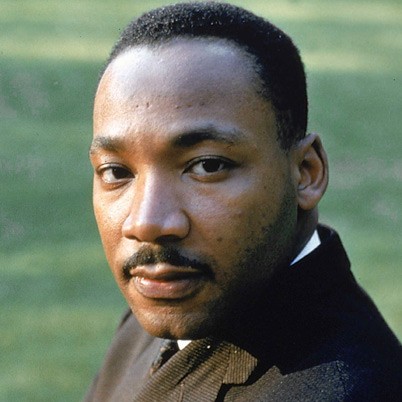
Forty-six years ago today, civil rights icon Martin Luther King, Jr. was assassinated in Memphis.
A pastor, humanitarian, and activist, King traveled to the city to support the 1968 Memphis Sanitation Workers Strike. Thirteen hundred African-American sanitation workers refused to labor until they received the same wages and treatment as their white colleagues.
On April 3rd, 1968, a day before his death, King visited Mason Temple Church of God in Christ to deliver his last speech, “I’ve Been to the Mountaintop.” The verbal presentation touched on the sanitation workers’ decision to go on strike due to being treated unfairly, the overall importance of equality and unity, among other things.
One of the most popular people involved with the civil rights movement, King was both a public figure and target. And on the night he delivered his speech at Mason Temple, he alluded to the possibility of being murdered in the future because of his popularity and influence. He conveyed that he wasn’t concerned about being harmed by hateful white men and that he was simply determined to carry out God’s will.
Ironically, King would be shot and killed the next evening. On April 4th, 1968, he was shot while standing on the balcony of the Lorraine Motel, a location that has since become part of the National Civil Rights Museum, around 6 p.m. A bullet from a Remington Model 760 rifle entered his right cheek and traveled through his neck severing his spinal cord before lodging into his shoulder. The 39-year-old was pronounced dead at the now-defunct St. Joseph’s Hospital at 7:05 p.m. that same night.
After his death was publicized, cities across the country, including Memphis, spiraled into a frenzy and rioted. This resulted in dozens of deaths and many more injuries.
Two months after the assassination, James Earl Ray, an escaped convict, was captured and charged with King’s murder. He admitted to fatally shooting King but renounced the confession days later. He alleged that he confessed as a result of extreme pressure from law enforcement and being threatened with the death penalty. Ray, ultimately, pled guilty to the assassination and received a 99-year prison sentence rather than the death penalty.
Years before he died, Ray attempted to withdraw his guilty plea and secure his innocence. He claimed that the assassination was a conspiracy spearheaded by a man named “Raoul.” Many others, including King’s family, also believed that more took place than what was being publicized. The King family supported Ray’s allegations that he was innocent. However, they claimed that Loyd Jowers, the owner of Jim’s Grill, a restaurant located near the Lorraine Motel, was involved with the assassination along with government agencies and the mafia.
Jowers himself also claimed that there was a conspiracy involving the mafia and the U.S. government to kill King. He claimed that Memphis police officer Lieutenant Earl Clark was actually responsible for King’s murder, and Ray was simply a scapegoat.
Only God knows who is truly responsible for the assassination of King. But countless people are aware of King’s contributions to the civil rights movement, primarily with the end of segregation in the South. To many, he’s one of the most influential and groundbreaking individuals in American history.
Nearly half a century since his assassination, things are significantly different than they were when King fought for economic equality and social justice. No longer can establishments avoid employing people or providing fair wages because of their race; equality has a more substantial presence. Of course, there are still a lot of issues plaguing society, but thanks to the contributions of people such as King, the opportunity for prosperity is no longer solely dictated by the color of a person’s skin.
Follow me on Twitter: @Lou4President
Friend me on Facebook: Louis Goggans
Check out my website: ahumblesoul.com